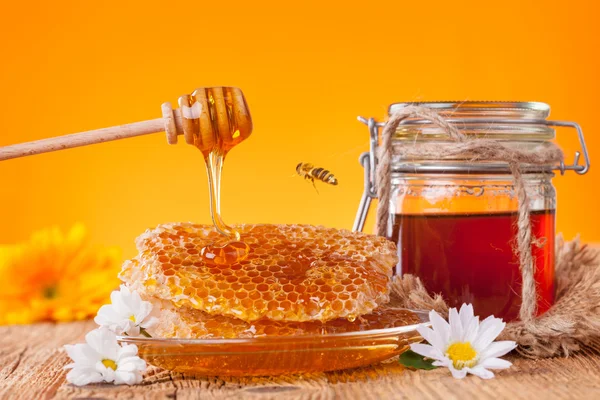Honey and Allergy Relief: Nature’s Sweet Solution or Just a Sweet Myth?

The Buzz About Honey and Allergies – What Science Says
For centuries, honey has been hailed as a golden elixir—soothing sore throats, boosting immunity, and even acting as a natural wound healer. But can this sweet, sticky nectar really help combat seasonal allergies?

As pollen counts rise and allergy sufferers reach for antihistamines, many are turning to a spoonful of local, raw honey as a natural remedy. The idea is simple: by consuming small amounts of local pollen through honey, your body builds tolerance, much like allergy shots. But does this home remedy hold up under scientific scrutiny, or is it just wishful thinking?
The Theory Behind Honey as an Allergy Fighter
The concept of honey alleviating allergies stems from oral immunotherapy—a method where gradual exposure to allergens can desensitize the immune system. Since bees collect pollen from local plants, the theory suggests that eating raw, unfiltered honey introduces tiny amounts of these allergens, potentially reducing sensitivity over time.
What Does Research Say?
While anecdotal evidence abounds, scientific studies present mixed results:
A 2011 study published in International Archives of Allergy and Immunology found that birch pollen honey helped reduce allergy symptoms in sufferers.
However, a 2002 study from Annals of Allergy, Asthma & Immunology concluded that honey had no significant effect on allergy symptoms compared to a placebo.
The inconsistency suggests that while honey may help some individuals, it’s not a guaranteed fix—especially for severe allergies.
Best Practices for Using Honey for Allergy Relief
If you want to try honey as a natural remedy, follow these expert-backed tips:
✔ Choose Local & Raw – Processed honey loses beneficial pollen. Opt for raw, unfiltered honey from local beekeepers.
✔ Start Early – Begin consuming honey weeks before allergy season to allow your body time to adjust.
✔ Moderation is Key – A teaspoon daily is enough; excessive amounts won’t speed up results.
✔ Don’t Replace Meds for Severe Allergies – Honey may help mild cases, but always consult an allergist for serious reactions.
Other Natural Allergy-Busting Allies
Pair honey with these remedies for extra relief:
Quercetin-rich foods (apples, onions, green tea) – A natural antihistamine.
Nettle leaf tea – Reduces inflammation and histamine response.
Probiotics – Gut health plays a role in immune regulation.
The Verdict: Sweet Relief or Just a Placebo?
While honey isn’t a cure-all, its antimicrobial, anti-inflammatory, and immune-boosting properties make it a worthy addition to your wellness toolkit—especially when sourced locally. For mild allergy sufferers, it might just take the edge off sneezes and sniffles. For others? Well, even if it’s just a delicious placebo, there’s no harm in enjoying nature’s liquid gold.




